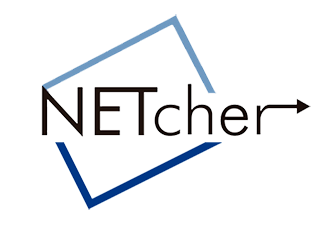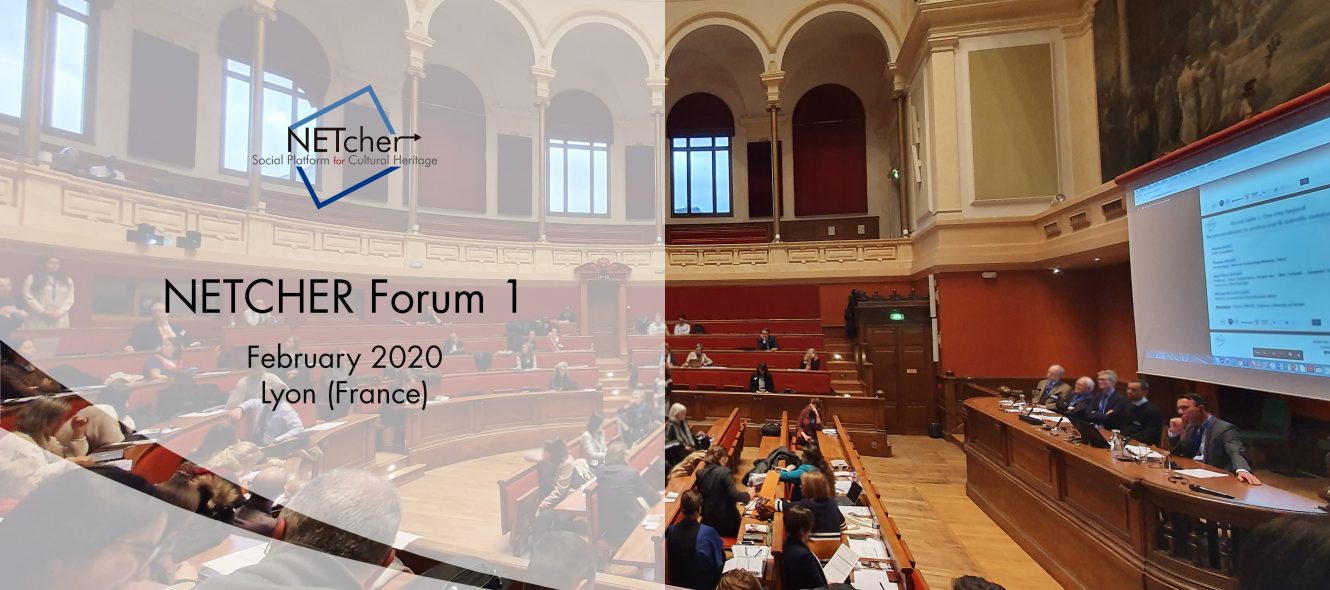NETCHER was glad to gather 100+ people from 12 countries for its first Forum, held in Lyon (France) on 25 and 26 February at the Université Lumière Lyon 2 and the Musée des Beaux-Arts de Lyon.
NETCHER was glad to gather 100+ people from 12 countries for its first Forum, held in Lyon (France) on 25 and 26 February at the Université Lumière Lyon 2 and the Musée des Beaux-Arts de Lyon. Huge thanks to the large panel of experts and attendees for sharing questions, experiences and practices through these two intensive days of discussions!
The first Forum was the occasion to share NETCHER Year 1 outcomes and, more specifically, to start addressing the key issues identified so far. In the face of cultural heritage looting and trafficking, the challenges and policy topics of European professional communities were discussed intensively. Requirements and perspectives, among others from the social sciences, digital humanities or innovative technologies, were identified. NETCHER Year 1 has also highlighted the powerful role that can be played by networks as a flexible and operative tool.
The Forum outcomes can be summarised as follows:
- Top-down and bottom-up approaches
Both are required in order to understand and to build on the legal framework, take into account existing references and tools, and, at the same time, to exchange practices and ideas, and connect people and standards better.
- Digital Humanities have a strong role to play!
The European research agenda has put digital humanities at the front of its priorities and this is connected to our challenges. Great interest and potential exist in modelling new methods. NETCHER’s mission is to contribute to the collection and use of all this experience.
- An Experts Task force
Such a task force of experts would be desirable in order to promote ideas at the European level. There are also challenges for technical and human resources:
- Meeting the challenges of Interdisciplinary
Such as building research, for example on standard languages, concepts and a common vocabulary. Time and efforts are required to gain awareness of the relevant professional communities’ requirements and to build this interdisciplinary approach. Despite the existing differences between the various professional circles, mutual understanding is crucial.
- Network as a key asset for success
The concept of network is very effective as a governance tool, and, due to the flexibility of networks, can be applied in a number of contexts. It can be the vector of good practices to be disseminated.
One of the main conclusions is the need to develop concrete recommendations at a European level that are adequate to deal with the problem. We can better exploit existing initiatives, which often are not linked with each other, existing legislations and existing databases. There are active whistle-blowers on social media who can help us. We need to systemize, coordinate and harmonize all these elements. We need to invent innovative tools, however, they should easy to use because they have to be employed widely.
The key important observations can be summarized under three points:
- time: studies on sociological and historical situations, as a careful ethical reflection, are needed;
- space: looting is located not only in distant countries, but often also at home. Similarly, traffic can take many forms (web, dark web, internet etc.). This phenomenon must be assessed at local and international levels;
- action: collaboration and interaction are key issues: there is no need to duplicate initiatives.
NETCHER must try to expand its community, to become sustainable by the end of this year, to develop from a network that issues recommendations to a greater force, one that can have a stronger presence at European level. This is the reason why relevant experts are urgently required on a European scale to join the community and to contribute to the protection of cultural heritage.
The full Forum 1 report will be available in the coming days.
We look forward to welcoming you to the next events!

